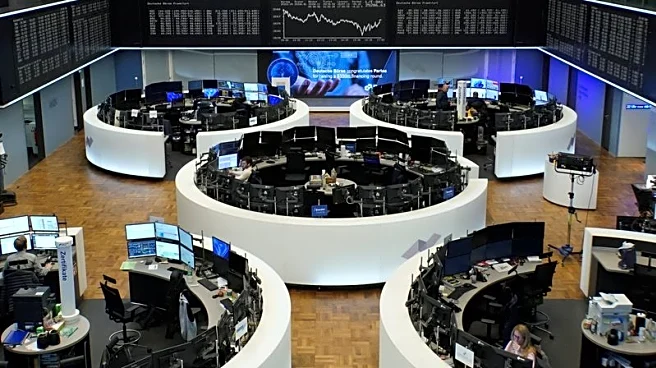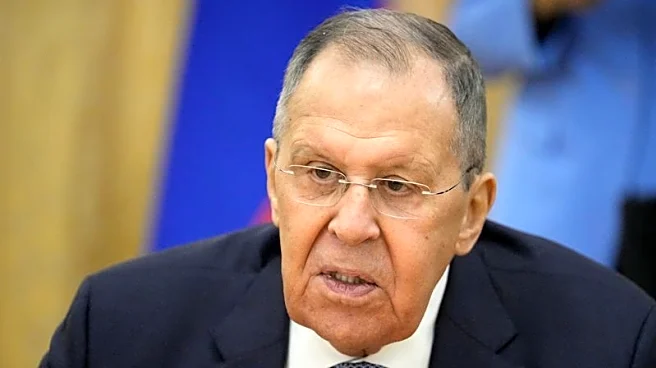Rapid Read • 8 min read
Ahmad al-Sharaa, appointed as the head of Syria's transitional government following the fall of Bashar Assad's regime, is experiencing diminishing international support. Initially backed by the United States, Britain, France, and regional powers like Saudi Arabia, Qatar, and Turkey, al-Sharaa was seen as a consensus figure capable of guiding Syria towards stability. However, recent violence along the Syrian coast and protests in Sweida have raised questions about the government's legitimacy and ability to govern effectively. An Israeli airstrike on Syria's Ministry of Defense further undermined the transitional government's image, leading to a loss of confidence among international supporters.
AD
The decline in support for al-Sharaa's government highlights the challenges of transitioning from an authoritarian regime to a democratic state. The inability to maintain authority and manage sectarian tensions has exposed the fragility of the transitional government. This situation has significant implications for regional stability, as Syria's unresolved internal conflicts could lead to further violence and displacement. The international community's recalibration of priorities, particularly the U.S.'s focus on other regions, suggests a shift in geopolitical interests that may affect future support for Syria's transition.
Syria's transitional government faces the urgent need to establish a new national project that acknowledges the country's pluralism and considers a decentralized state model. A high-level transitional justice committee overseen by the United Nations could address issues of detainees and accountability. Rebuilding Syria's military as a professional and inclusive institution is crucial for stability. Regional cooperation involving Turkey, Iran, and Saudi Arabia, along with renewed dialogue between Washington and Moscow, is essential for a comprehensive peace framework. Without these measures, Syria risks further conflict and fragmentation.
The situation in Syria underscores the importance of genuine decentralization and regional agreements in political transitions. The experience of Ahmad al-Sharaa reveals that international support must be accompanied by practical tools to address deep social fractures. The transitional phase is a test of legitimacy, requiring a shift from supporting individuals to rebuilding institutions. The international community must recognize Syria's pluralism and work towards reconciliation between the state and local communities to achieve lasting peace.
AD
More Stories You Might Enjoy











